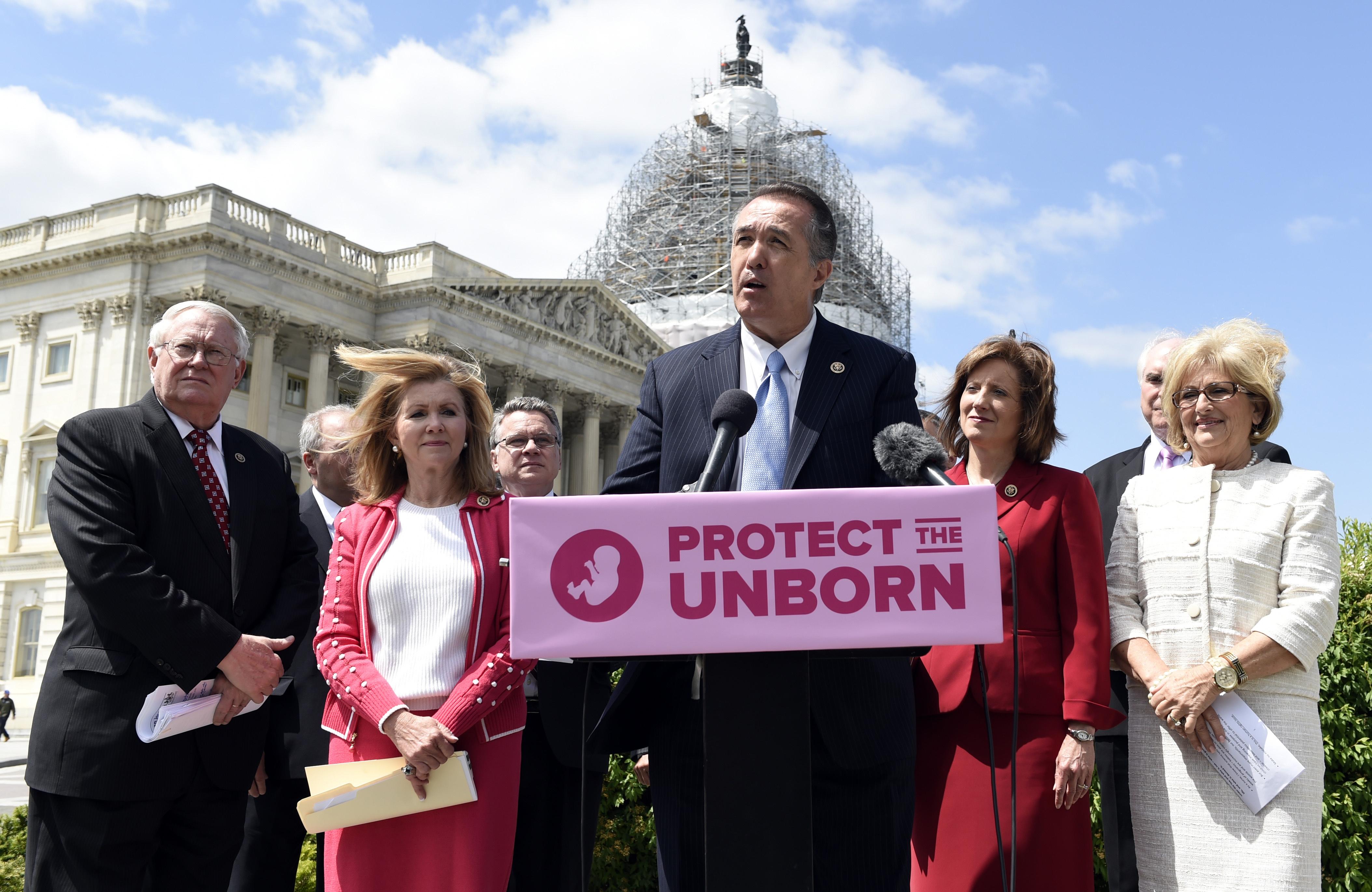In October 2017, the majority conservative House of Representatives voted to pass the Pain-Capable Unborn Child Protection Act which sought to prohibit any abortion after 20 weeks of development, unless it could be proven that continuation of a pregnancy would harm the mother’s physical health or if the fetus was a product of rape or incest.
The anti-abortion bill recently went to the Senate floor where Democratic senators filibustered it. The vote to end the filibuster narrowly failed by a vote of 51 – 46. If the bill had gone to vote, there is a serious possibility that it would have passed because the Senate is majority Republican.

President Donald Trump had pushed for the passage of the Pain-Capable Unborn Child Protection Act, saying that the anti-abortion bill would secure critical pro-life protections. President Trump has previously expressed his commitment to the promotion of pro-life policies, including severely curtailing or repealing Roe vs. Wade protections on abortion, as this bill would have done.
The premise of this anti-abortion bill rested on the idea that fetuses can feel pain at 20 weeks gestation; in fact, the text of the bill reads “…there is substantial medical evidence that an unborn child is capable of experiencing pain by 20 weeks after fertilization, if not earlier. It is the purpose of the Congress to assert a compelling governmental interest in protecting the lives of unborn children from the stage at which substantial medical evidence indicates that they are capable of feeling pain.”
Yet, the scientific evidence to back the bill’s claims is not as strong as the government claims it to be. A 2013 report from the American Congress of Obstetricians and Gynecologists stated that fetuses lack conscious recognition of stimuli, which doesn’t develop until into the third trimester long after the 20-week mark, thus fetuses cannot feel pain.
Although the Pain-Capable Unborn Child Protection Act noted that fetuses do show reactions to painful stimuli, Hugo Lagercrantz of the Karolinska Institute stated those reactions are most likely of nonconscious origin, especially when considering that certain parts of the brain that develop pain awareness do not even develop until between 23 and 30 weeks gestation.
Bills that limit the scope of elective abortions to a certain gestational period, like the Pain-Capable Act, are medically unnecessary and do not provide legitimate protection for unborn children. However, a 20-week abortion ban might yet again come before Congress.
Congressman Lindsey Graham, the sponsor of the Pain-Capable Act, said, “to those who believe [in the ban], we will be back for another day” when addressing supporters of the bill.
The Pain-Capable Unborn Child Act is just one of the many needless and potentially dangerous anti-abortion bills that Congress proposed in the last year. Many of the most restrictive bills are still sitting in various House and Senate committees, but some have already passed one legislative chamber and will soon be heard in another.
One bill on the table is H.R. 7, which passed the House of Representatives last week and, if signed, would permanently prohibit federal funds from being used for abortion coverage. Each year, Congress has passed the Hyde Amendment, which temporarily suspends federal spending on abortion coverage. However, H.R. 7 permanently enshrines the Hyde Amendment into U.S. law, which would have significant long-term policy implications for the funding of abortions.
The current Hyde Amendment restrictions are making it more challenging for lower-income women to afford an abortion, and if H.R. 7 will continue the Hyde Amendment financial burden.
H.R. 7 passed with a solid majority in the House, and already has significant support for Senate co-sponsors, meaning it could pass the Senate as well. If so, it would most likely be signed by President Trump, since he has previously expressed his desire to see the Hyde Amendment enacted into law.
Although much of the Congressional rhetoric surrounding abortion is under the guise of protecting the unborn child’s rights, currently proposed Congressional legislation does anything but protect children from harm. For example, the Pain-Capable Unborn Child Protection Act is not medically proven to provide protection to unborn children against pain because they are incapable of feeling such pain; it does, however, restrict access to abortion services without proper justification.
Additionally, codifying H.R. 7 into law would not protect unborn children as intended because there is no provision in the bill for pregnancy termination in cases of life-threatening fetal abnormalities. A permanent provision against federal funding for abortion would most likely further prevent low-income women from terminating pregnancies even if the fetus was not able to be viable outside of the womb.
The narrow failure of the anti-abortion Pain-Capable Unborn Child Protection Act and the significant Congressional support for measures like H.R. 7 is concerning. The anti-abortion GOP is currently in control of both houses of Congress and the executive branch, which increases the likelihood that anti-abortion bills will be passed and signed into law.
A House or Senate committee could recommend a full vote on anti-abortion bills similar to or more restrictive than the ones that have already been debated in 2018. Thus, this year we will likely see additional tests to abortion access.

















